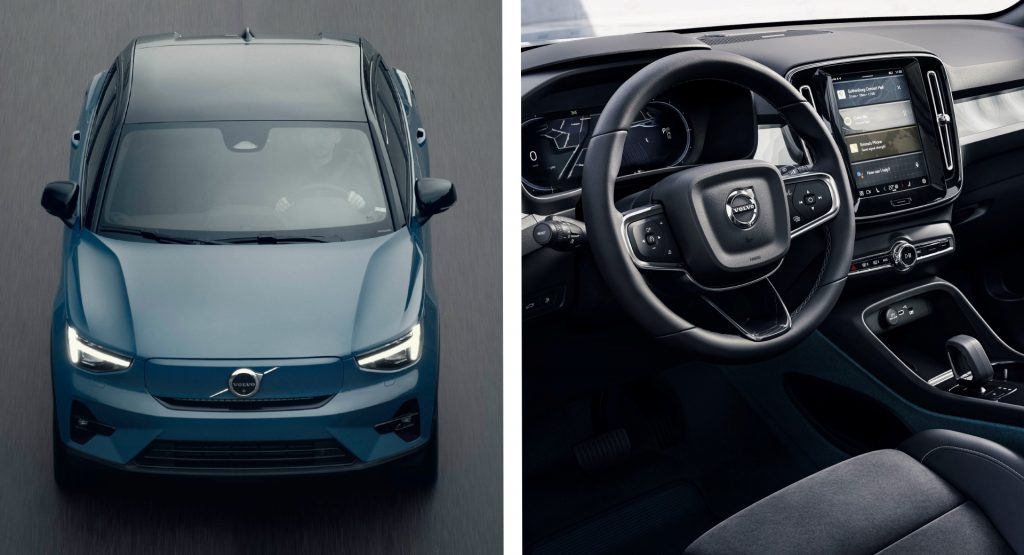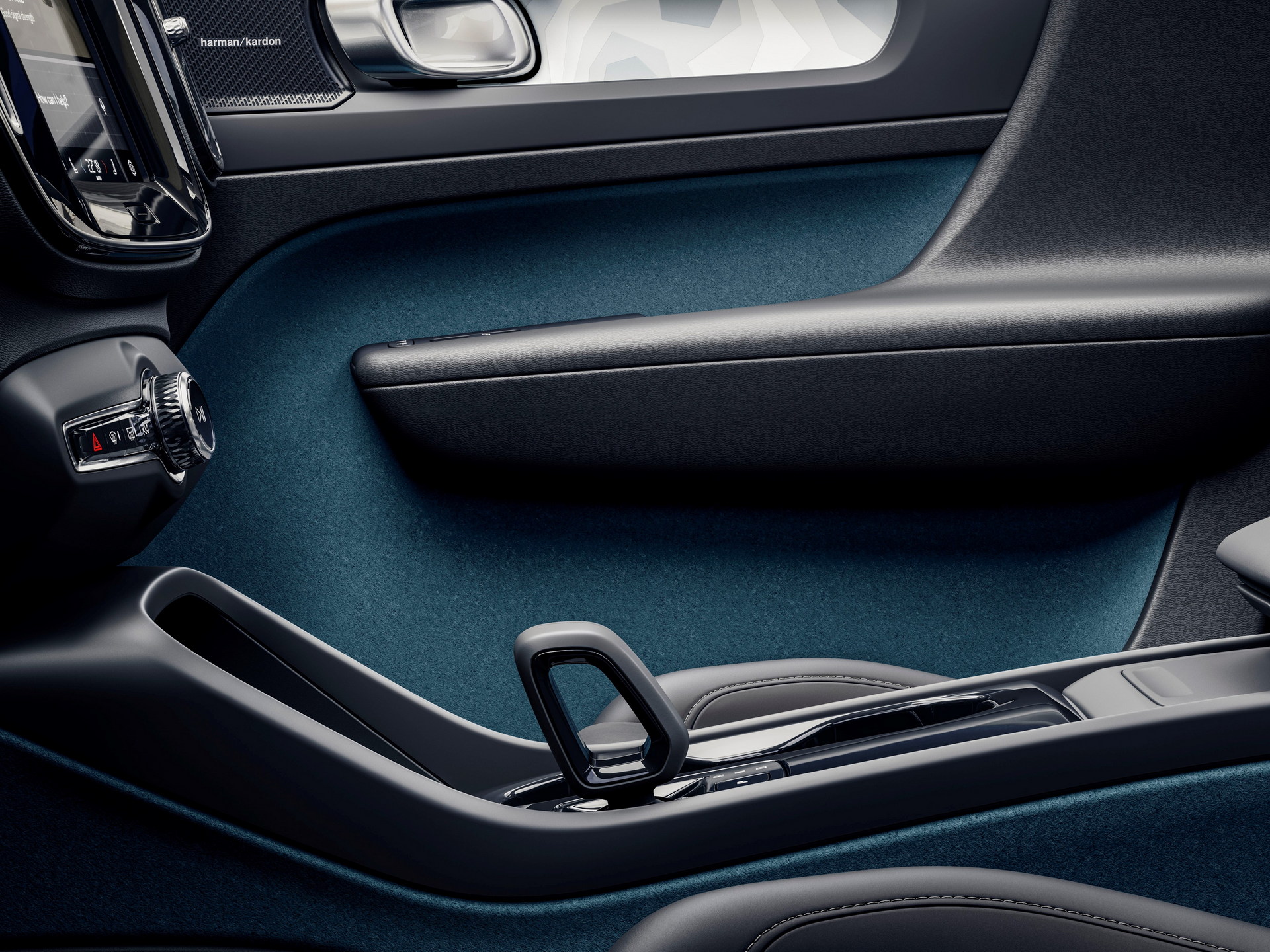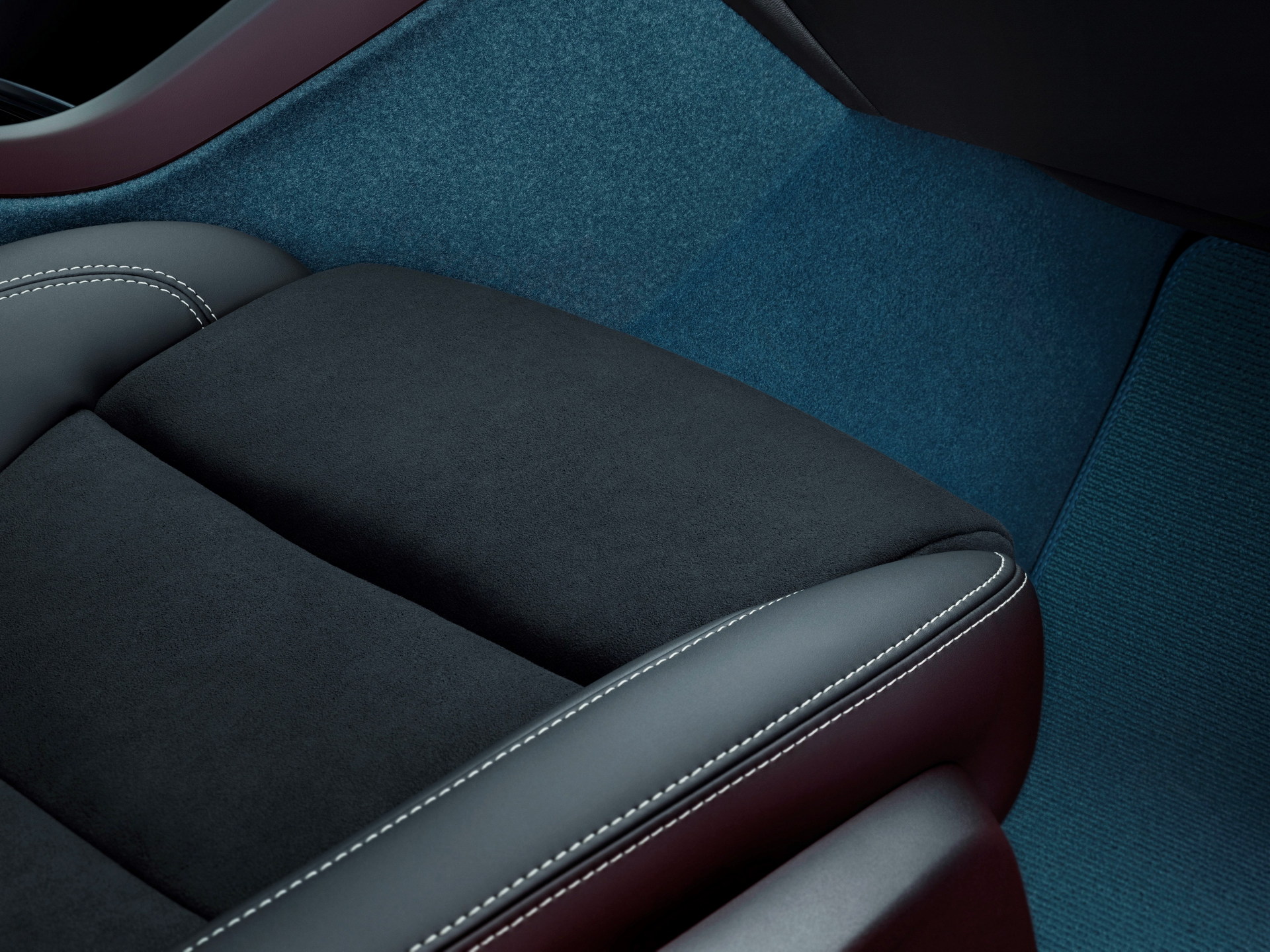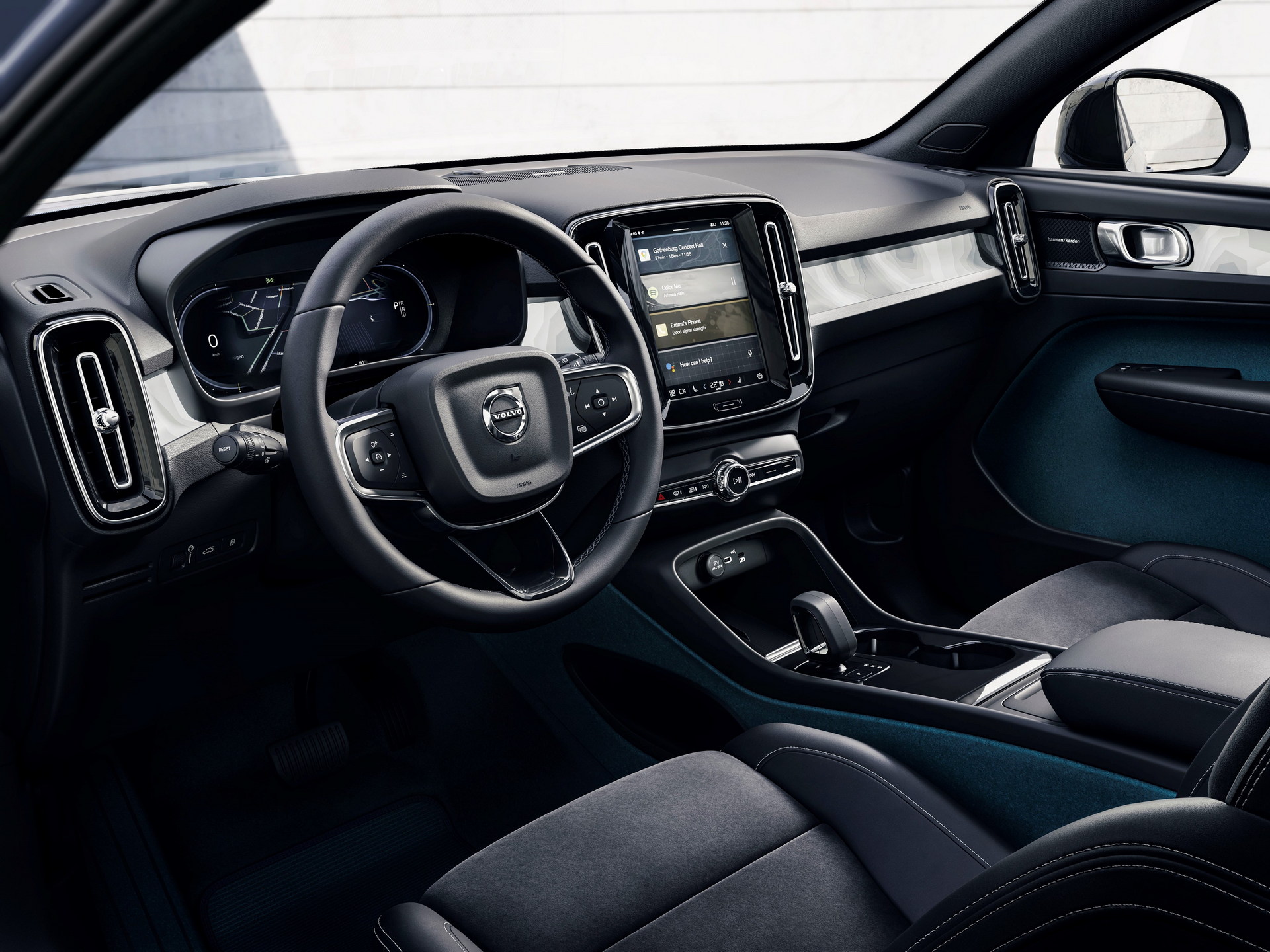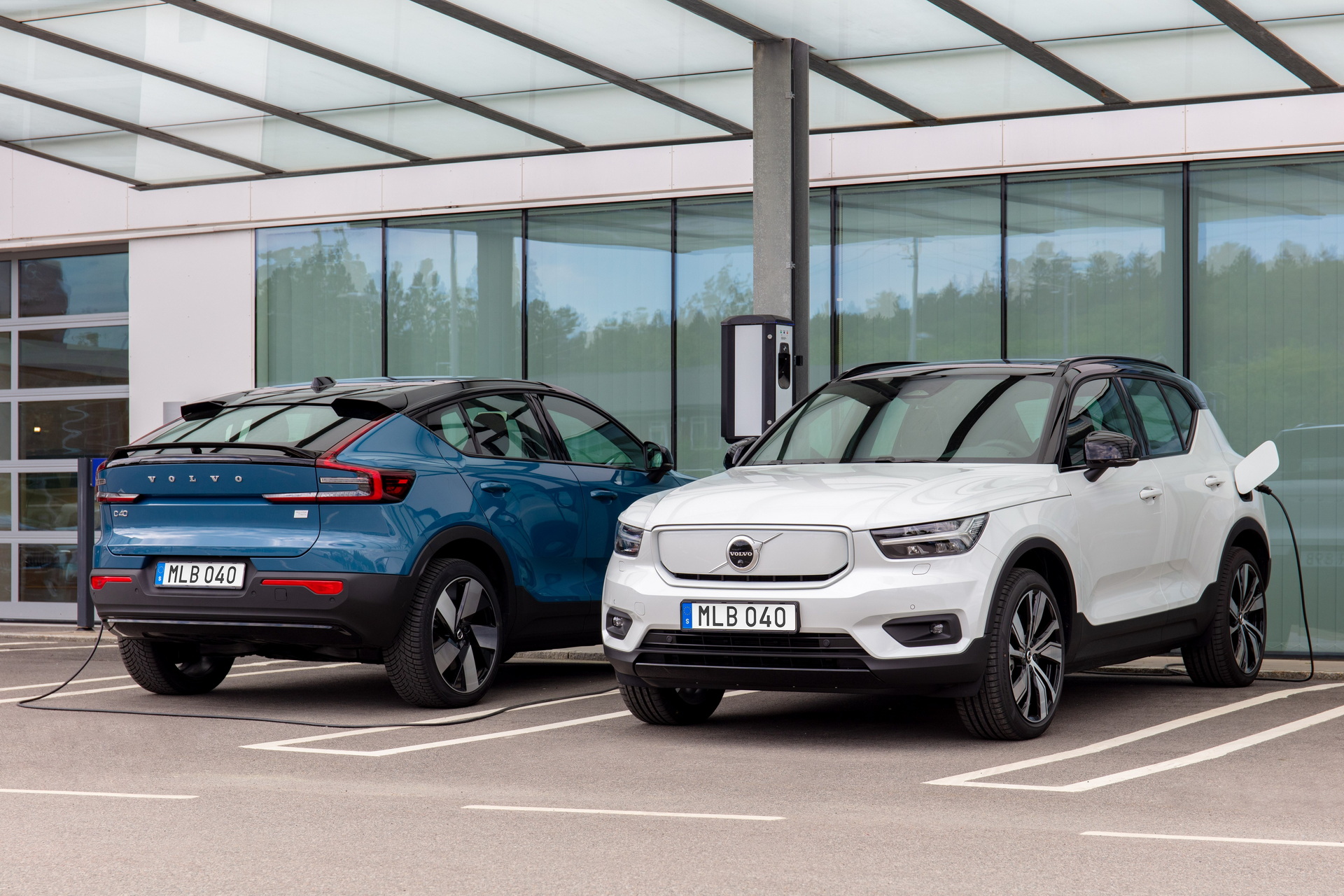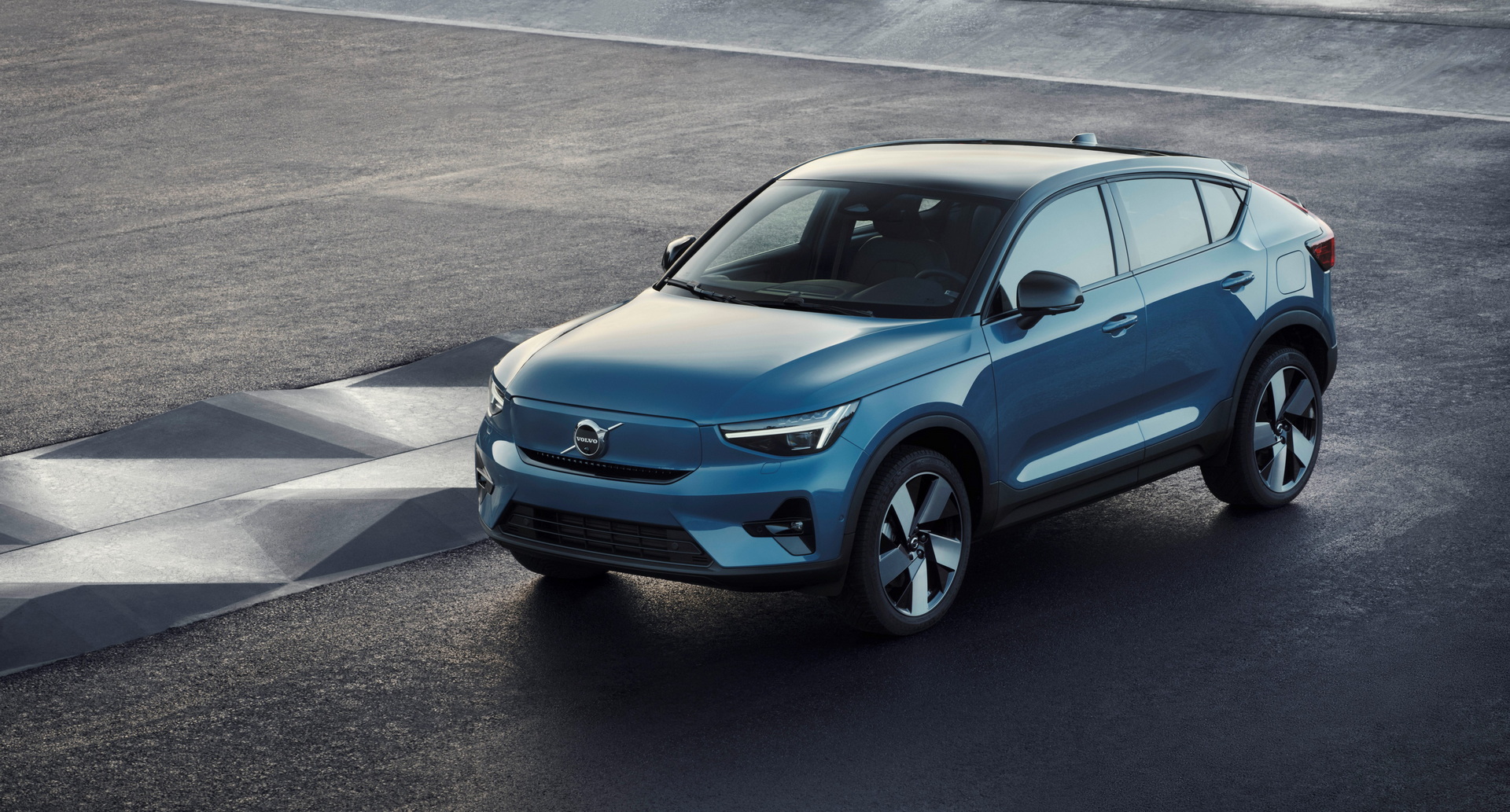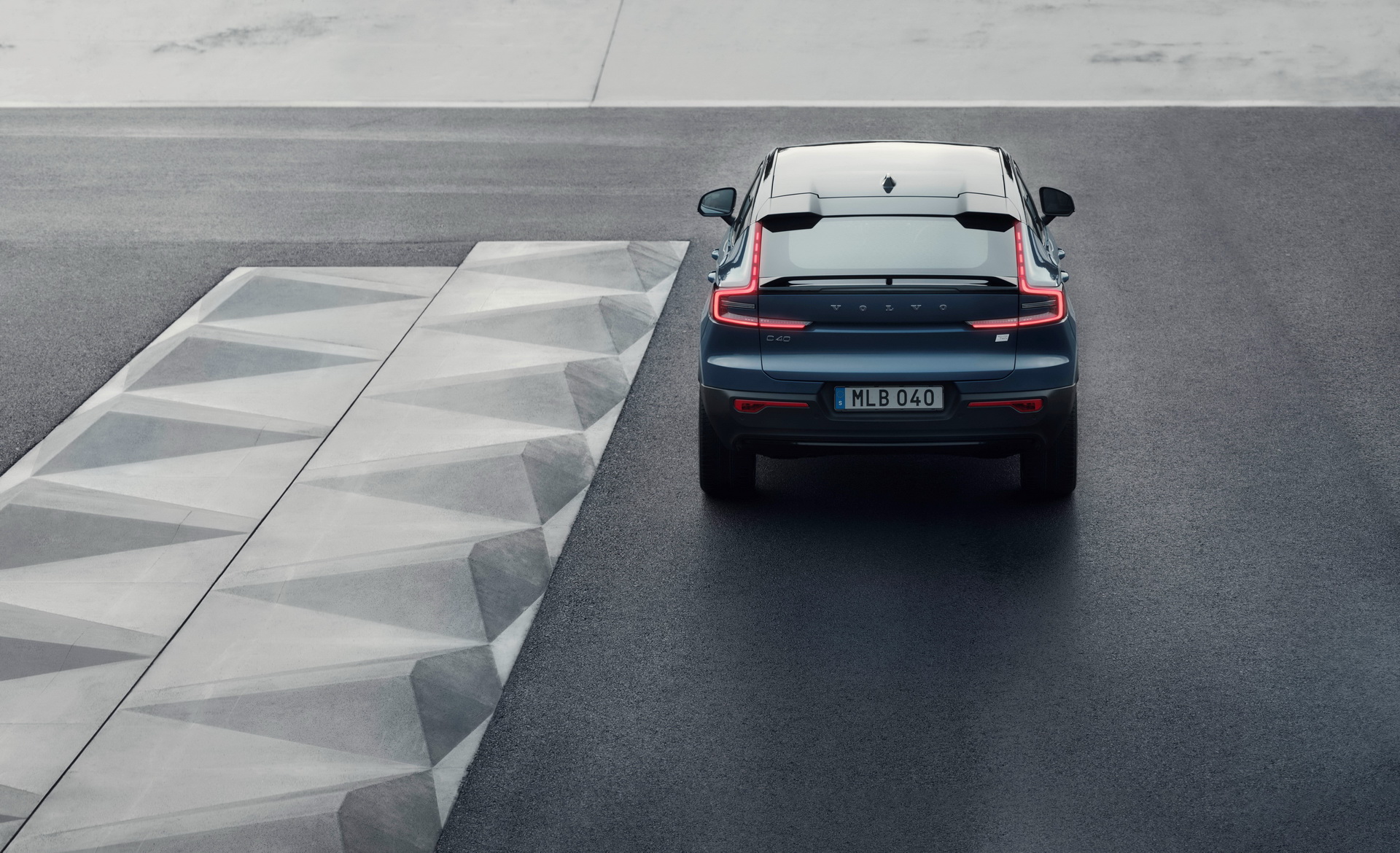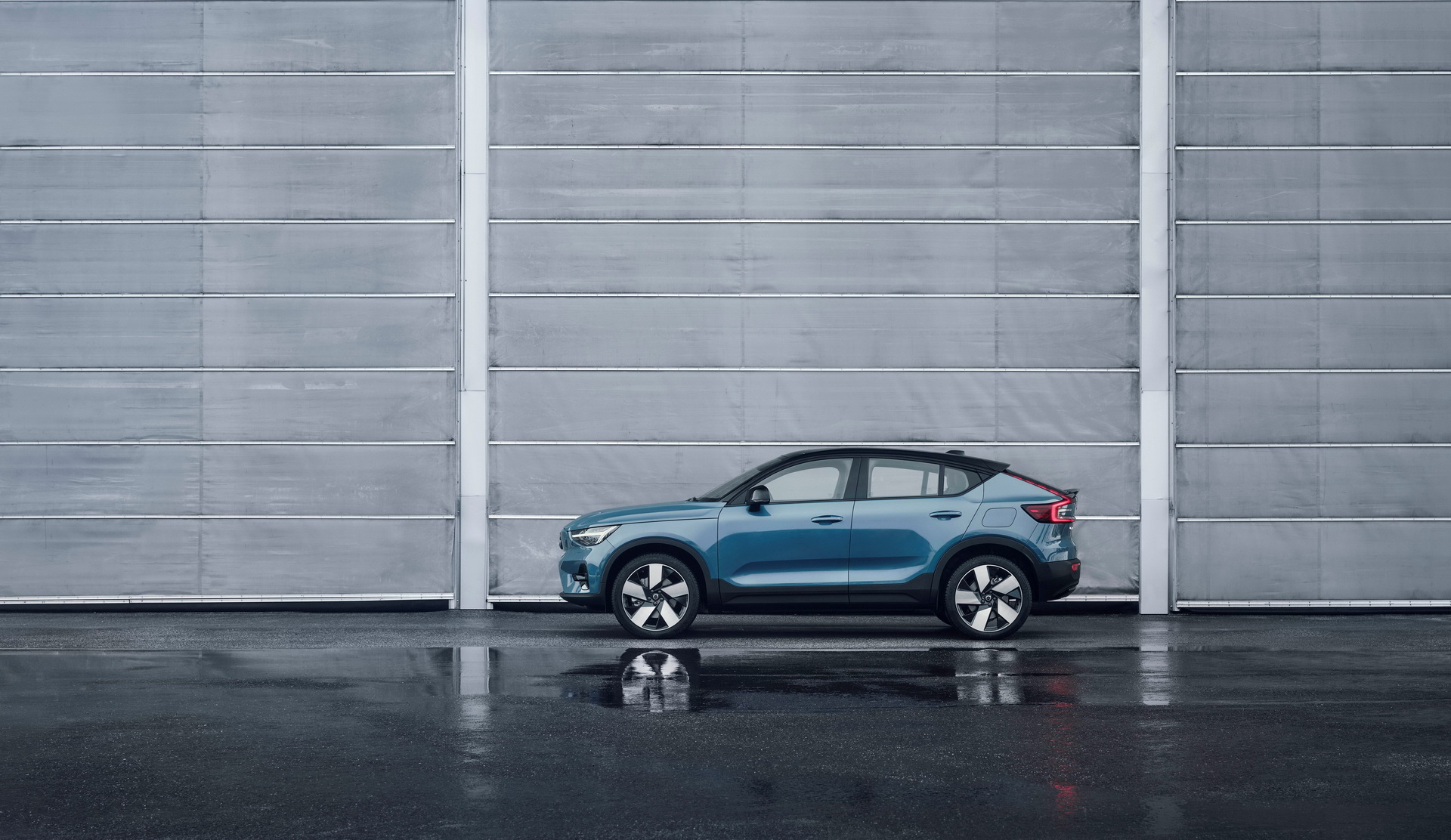Volvo is the latest company to join the leather-free movement, announcing that starting with the Volvo C40 Recharge, all of its fully electric models will be completely leather-free.
Given that Volvo will be an electric-only automaker by 2030, this means that the Swedish company is saying goodbye to leather for good, opting for more sustainable options that are also aligned with animal rights and well-being.
Volvo wants to become a “fully circular business” by 2040. In that context, by 2025 they aim for 25 percent of materials used in new Volvo cars to consist of recycled and bio-based content, plus making sure their immediate suppliers are using 100 percent renewable energy.
This goal wouldn’t be achievable with continuous use of natural leather since cattle farming has negative environmental impacts, and livestock is responsible for around 14 percent of global greenhouse gas emissions originating from human activity.
See Also: New C40 Recharge Breaks Cover As Volvo’s Latest Electric Coupe-SUV With 261 Miles Of Range
As an alternative to leather, Volvo will be offering high-quality and sustainable materials like Nordico that will debut in the next-generation Volvo models. According to Volvo, Nordico is made from recycled PET bottles, bio-attributed material from sustainable forests in Sweden and Finland, and recycled corks for the wine industry.
Besides environmental issues, Volvo is also interested in animal welfare. Thus, they will continue offering wool blend options but only from suppliers “certified to source responsibly”, ensuring full traceability of the material. At the same time, the company is trying to reduce the use of residual products from livestock production that are commonly used in the manufacturing process of plastics, rubber, lubricants, and adhesives. Reduced demand for those animal-sourced products will contribute to stop animal harm.
Stuart Templar, director of global sustainability at Volvo Cars said: “Being a progressive car maker means we need to address all areas of sustainability, not just CO2 emissions. Responsible sourcing is an important part of that work, including respect for animal welfare. Going leather-free inside our pure electric cars is a good next step towards addressing this issue”. Templar admits it will be challenging to source products and materials that support animal welfare, but claims “this is a journey worth taking”.
Read Also: Future MINI Models Won’t Offer A Leather Option But They’ll Still Be Fun, Says Design Boss
According to a recent study, two-thirds of consumers are considering a brand’s environmental policies as a critical factor when purchasing luxury products, and they would like to see carbon labeling on them. This and many other conclusions and insights can be found in “The Rise of Conscious Design” report issued by Volvo Cars in collaboration with The Future Laboratory.




